Jan 20th, 2024
Do White Collar Offenders Face Imprisonment in Oregon?

The story of Bernie Madoff has become almost legendary in its infamy. As the mastermind behind the biggest Ponzi scheme in history, Madoff defrauded investors of an astonishing $64.8 billion. His actions led to severe repercussions for countless individuals and organizations, culminating in his conviction and a 150-year prison sentence. The fallout from Madoff’s scheme was catastrophic, with profound personal tragedies for his family, including the suicide of one of his sons and the heart-wrenching murder-suicide involving his sister and brother-in-law.
White Collar Crimes and Penalties in Oregon
Madoff’s case exemplifies a white-collar crime—a financially motivated, non-violent offense. Like Madoff, those involved in white-collar crimes in Oregon could also face prison sentences.
Examples of white-collar crimes encompass:
- Embezzlement
- Insurance fraud
- Welfare fraud
- Credit card fraud
- Mortgage fraud
- Forgery
- Bribery
- Counterfeiting
- Misappropriation of public funds
- Bankruptcy fraud
- Financial institution fraud
- Antitrust violations
- Economic espionage and trade secret theft
- Money laundering
Since most white-collar crimes fall under federal jurisdiction, the federal government handles the punishment for those convicted.
Implications for White Collar Offenses in Oregon
In Oregon, white-collar crimes can lead to imprisonment, significant fines, and restitution to victims. The extent of these consequences varies based on the specific crime committed, the amount of money involved, and other pertinent factors. Here are illustrative examples:
- **Money Laundering:** Money laundering involves disguising the origins of illegally obtained funds. If money laundered surpasses $5,000 within a seven-day period or $25,000 over 30 days and consists of a transaction through a financial institution, it qualifies as money laundering. Penalties range from misdemeanor to felony, with potential jail terms from one year to three years and fines up to $250,000 or twice the laundered amount, depending on the severity of the crime.
- **Commercial Bribery:** An employee accepting a bribe to confer benefits upon another party. If the fix exceeds $1,000, it becomes a felony and may lead to imprisonment of up to three years in state prison.
- **Embezzlement:** Embezzlement involves misappropriating funds from an employer. Charges vary based on the amount stolen, with misdemeanors for amounts under $950 and felonies exceeding $950 leading to potential prison sentences of up to three years.
- **Insurance Fraud:** Whether classified as a misdemeanor or felony, insurance fraud (submitting fraudulent insurance claims) in Oregon can result in jail time ranging from one year to three to five years and fines ranging from $10,000 to $50,000.
- **Forgery:** Forging legal documents, checks, or tampering with signatures is subject to misdemeanor or felony charges, carrying sentences from one year to 16 months in state prison or 2-3 years in county jail, along with fines and restitution.
These examples provide insight into Oregon’s possible legal repercussions for white-collar offenses. However, each case is unique, and a defense strategy tailored to the situation’s specifics is vital.
Defenses for White Collar Crimes
Numerous defense strategies exist for white-collar crimes. Collaborating with a skilled criminal defense attorney in Oregon can help determine the most suitable approach for your case. The prosecution must prove guilt beyond a reasonable doubt, and a capable attorney can identify weaknesses in their case or gather evidence supporting your innocence. Defense tactics may include:
- **Proving Intent:** The prosecution must demonstrate criminal intent. A defense attorney may argue that you did not intend to commit the crime if it cannot be proven.
- **Entrapment:** If law enforcement coerced you into committing a crime you otherwise wouldn’t have, entrapment could be a viable defense.
- **Illegal Search and Seizure:** If evidence is obtained through an illegal search without a warrant or a violation of Miranda rights, it could warrant a defense.
- **Coercion:** If threats compelled your involvement in a crime, coercion could be a legitimate defense.
Deciding on Plea Bargain vs. Trial
While many cases conclude with a plea bargain, some criminal cases, including white-collar crimes, proceed to trial. A plea bargain involves pleading guilty to reduced charges in exchange for lighter sentences. Opting for trial, however, may be appropriate if your attorney believes the case is strong enough for acquittal or dismissal of charges.
The Role of a Criminal Defense Lawyer
Public defenders are provided to those who cannot afford private representation. However, due to high caseloads, they may need more time and resources to focus extensively on individual cases. Opting for a personal attorney offers personalized attention, timely responses, and dedicated advocacy. Criteria to consider when selecting an attorney include relevant experience, accessibility, and flexibility regarding payment plans.
Seeking an Experienced Oregon Criminal Defense Attorney
When you’re in need of an Oregon criminal defense attorney, especially for white-collar crime cases, it’s crucial to choose one with a proven history of successfully handling such matters and achieving positive results. Our attorneys at Gilroy Napoli Short Law Group are well-equipped to represent you if you’re facing white-collar crime charges. Their expertise encompasses not only negotiating favorable settlements but also taking cases to trial when necessary, and providing exceptional support throughout the legal process.
If you find yourself facing such charges, don’t hesitate to contact our team. With offices across the state, we’re readily accessible. Reach us at (503) 747-7198. Call or email us today to arrange a complimentary consultation.















